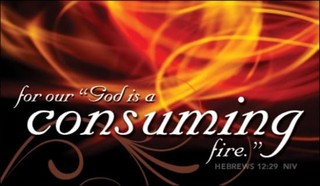
- Recent Translations
- All Translations
Yehudim in Moshiach 12:17
Share
Settings
Yehudim in Moshiach 12:17 Meaning and Commentary
For ye know how that afterwards
After he had had his pottage; after he had sold his birthright for it, and the blessing with it; after his father had blessed Jacob: this the apostle relates to the Hebrews, as a thing well known to them; they having read the books of Moses, and being conversant with them, in which the whole history of this affair is recorded:
how that when he would have inherited the blessing, he was rejected;
by his father, who refused to give him the blessing, but confirmed what he had given to Jacob; and also by God, he being the object of his hatred; concerning whom he had said, even before his birth, the elder shall serve the younger, ( Romans 9:11-13 ) ,
for he found no place of repentance, though he sought it carefully
with tears,
( Genesis 27:34 Genesis 27:38 ) though he was very solicitous for the blessing, and shed many tears to obtain it, yet he had no true repentance for his sin in soiling the birthright. Tears are not an infallible sign of repentance: men may be more concerned for the loss and mischief that come by sin, than for the evil that is in it; and such repentance is not sincere; it does not spring from love to God, or a concern for his glory; nor does it bring forth proper fruits: or rather, the sense of the words is, that notwithstanding all his solicitude, importunity, and tears, he found no place of repentance in his father Isaac; he could not prevail upon him to change his mind; to revoke the blessing he had bestowed on Jacob, and confer it on him, ( Genesis 27:33 ) for he plainly saw it was the mind of God, that the blessing should be where it was; whose counsel shall stand, and he will do all his pleasure. This latter seems to be the better interpretation of the words, though the former agrees with the Targum on ( Job 15:20 )
``all the days of Esau the ungodly, they expected that he would have repented, but he repented not.''

